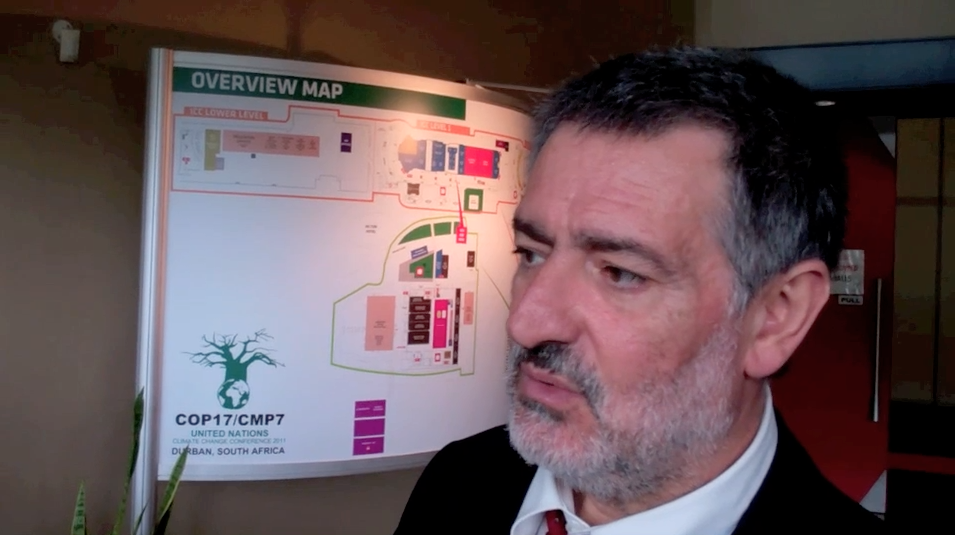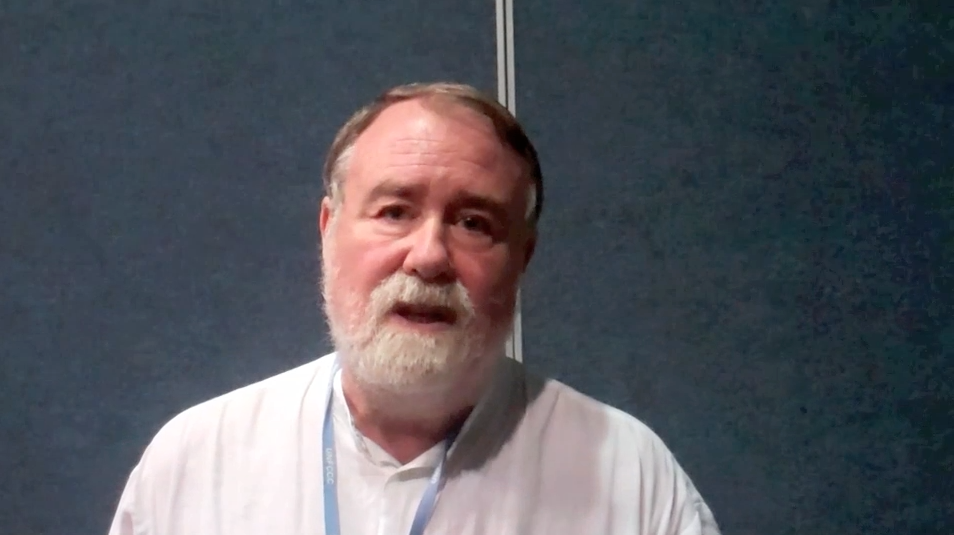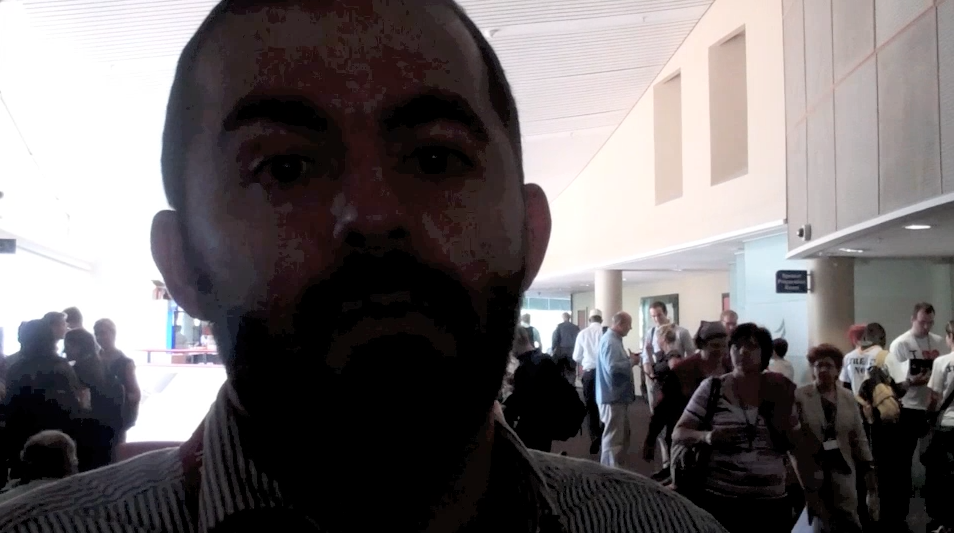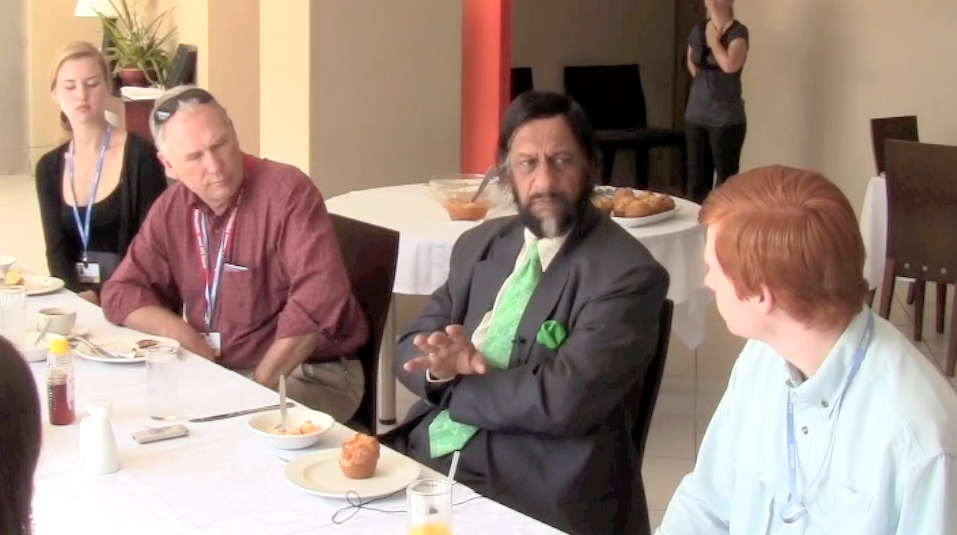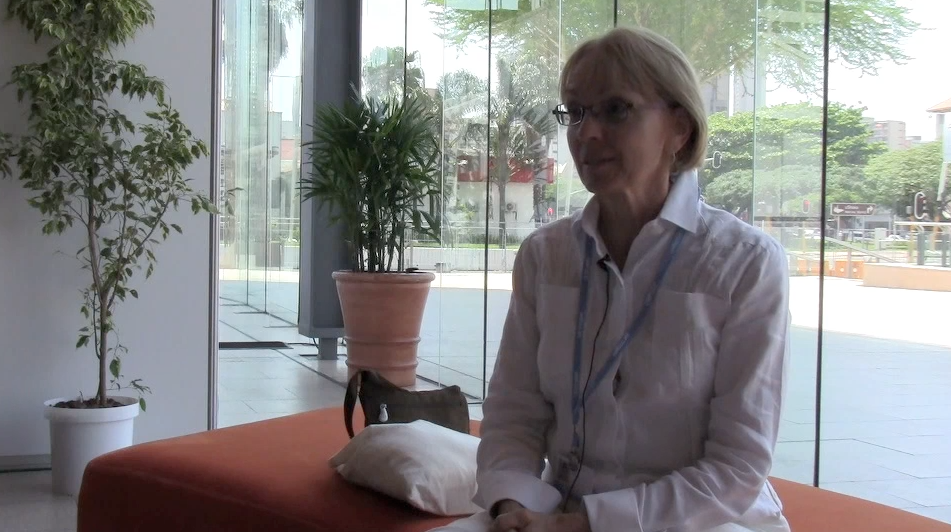Interviewed by Timothy Damon on December 9, 2011, COP 17, Durban, South Africa
Tag: science
Interviewed by Timothy Damon on December 9, 2011, COP 17, Durban, South Africa
Interviewed by Elena Capaldi on December 7, 2011, COP 17, Durban, South Africa
David Turnbull, Director of CAN International, discusses the key issues of the climate negotiations, namely a second commitment of the Kyoto Protocol, long term cooperative action, and climate funding. He claims there is a more masked issue of ambition and calls for delegates to match policy with science. He believes that without a second period of the Kyoto Protocol there cannot be a good overall outcome at the conference. He then discusses USA ambition and calls for more action like the Tar sands protests of Fall 2011.
Interviewed by the Claire Tighe on December 7, 2011, COP 17, Durban, South Africa
Dr. Rajendra K. Pachauri, Chairperson for the Intergovernmental Panel on Climate Change, discusses how the process of intense peer review in IPCC report production, while it slows down the process, is extremely necessary in gaining trust from politicians. He voices concern for advocacy for action on the science the IPCC collects. He claims the IPCC does not have the time or resources to advocate for climate action and encourages others to take the sound science they have collected and spread awareness about it.
Interviewed by the Dickinson Climate Mosaic on December 7, 2011, COP 17, Durban, South Africa
Dr. Rajendra K. Pachauri, Chairperson for the Intergovernmental Panel on Climate Change, explains the steps he believes need to be taken to breach the gap between climate science and the policy being made. First, the science community needs to communicate more. Second, there are vested interests that need to be addressed. Last, in the context of COP 17, we need to address the fact that science is not playing as big of a role in the conference as it needs to.
Interviewed by the Dickinson Climate Mosaic on December 7, 2011, COP 17, Durban, South Africa
Dr. Rajendra K. Pachauri, Chairperson for the Intergovernmental Panel on Climate Change, discusses the need for urgency in climate change action. The AR4 report declares that in order to stabilize temperature to between 2-2.4 degrees we must peak emissions within four years in the least cost manner. He claims we are losing time because we are losing our least cost options. He is uncertain about solutions to these problems; he voices hesitation about the UNFCCC process as a whole, declares the need for country mobilization, and claims there is a serious lack of leadership and a sense of urgency.
Interviewed by the Dickinson Climate Mosaic on December 7, 2011, COP 17, Durban, South Africa
Dr. Kristie Ebi, Executive Director of the Technical Support Unit Group II under Working Group II of the International Panel of Climate Change, discusses the recent release of a report, “Managing the Risks of Extreme Events and Disasters to Advance Climate Change.” She discusses the history and significance of the report, scientific consensus and how the report may impact policy decisions made at the conference.
Interviewed by Timothy Damon on November 28, 2011, COP 17, Durban, South Africa
